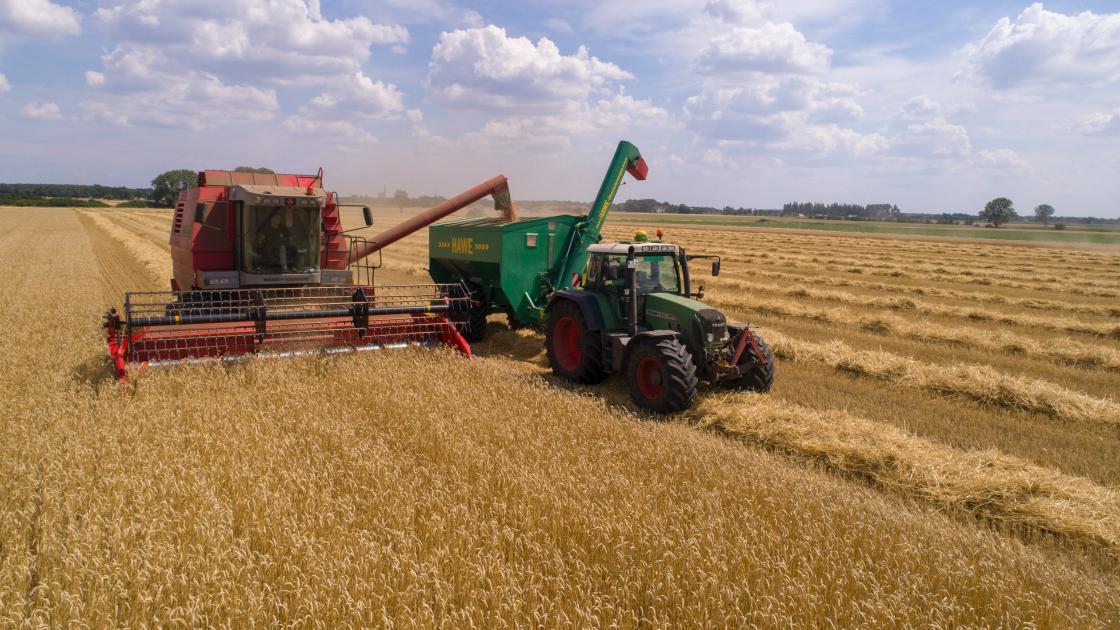
A farmer’s health and safety
Farming is consistently ranked as one of the most dangerous jobs in the country. According to the U.S. Centers for Disease Control and Prevention (CDC), 410 farmers lost their lives in 2019 due to a work-related injury, and each day about 100 farmers and agricultural employees sustain some sort of injury or illness that causes them to miss work. Data from the Bureau of Labor Statistics show that farming is twice as deadly as law enforcement and five times as deadly as firefighting.
While grim, these statistics aren't meant to cause fear nor discourage farmers from committing to their line of work. Being a part of the farming culture can be incredibly rewarding for individuals, families and their communities. But it's important to be aware of common health and safety risks within the farming and agricultural industries, and to know how to mitigate these risks.
In honor of National Farm Safety and Health Week, here are three things the farmer can do to raise the standard of safety on your farm:
1. Take a safety self-inventory
To promote health and safety for yourself, your employees and your family, first be aware of the many safety hazards on your farm. Some of the most common potential hazards faced by farmers, ranchers and other agricultural workers include:
- Chemicals
- Animals
- Motor vehicles, welding supplies, pivots, and other types of equipment and machinery
- Firearms
- Heights
- Confined spaces (e.g., grain bins, silos, tanks)
- Water
- Weather
These and other hazards can lead to a wide range of serious and sometimes fatal conditions affecting farmers of all ages, including crush injuries, falls, hearing loss, traumatic limb amputations, burns, accidental poisoning, drownings and near drownings, brain injuries, electrocution, heatstroke, hypothermia and respiratory illnesses.
To avoid these serious problems, take note of any potential hazards you have on your farm. Ensure that anyone who interacts with these hazards has been properly trained and has access to all the necessary gear and equipment to keep them safer while doing so (e.g., helmets, eye and ear protection, proper footwear, etc.). Establish clear rules with your children and family regarding behavior while on the property. Regularly monitor and fix equipment. Lastly, be a role model for your family and employees by practicing safe farm habits yourself.
You can also use your safety self-inventory as an opportunity to make any necessary safety upgrades. For example, many older tractors do not have modern-day applications that can prevent rollover accidents.
2. Take advantage of online learning opportunities
The National Education Center for Agricultural Safety (NECAS) offers safety training to people who respond to and manage incidents involving agricultural injuries and equipment. Keep an eye out for webinars and courses on topics including tractor safety, rural roadway safety and confined space safety.
Many farmers choose to undergo additional training in areas like basic first aid, CPR, respiratory fit testing, emergency preparedness and more. To boost your skills, explore the Red Cross and other local resources.
3. Build (or beef up) your farm first aid kit
Farmers often work in remote areas alone or with few other people. If an accident happens, it can take longer than usual for emergency first responders to arrive.
For this reason, it's a good idea to have farm first aid kits readily available, in addition to having some basic first aid skills and knowledge. You can purchase farm first aid kits or create your own. Be sure to include items like bandages, large scissors, antibiotic ointments, cold compresses, thermal blankets, eye wash, prescription medications and more.
Are you focused on safety at your farm?
Contact Karen Stallman at SIU Medicine's Farm Family Resource Initiative today at 618.713.0759 to let us know what health and safety resources you'd like to see us offer.
Karen Leavitt Stallman
Ag Resource Specialist



